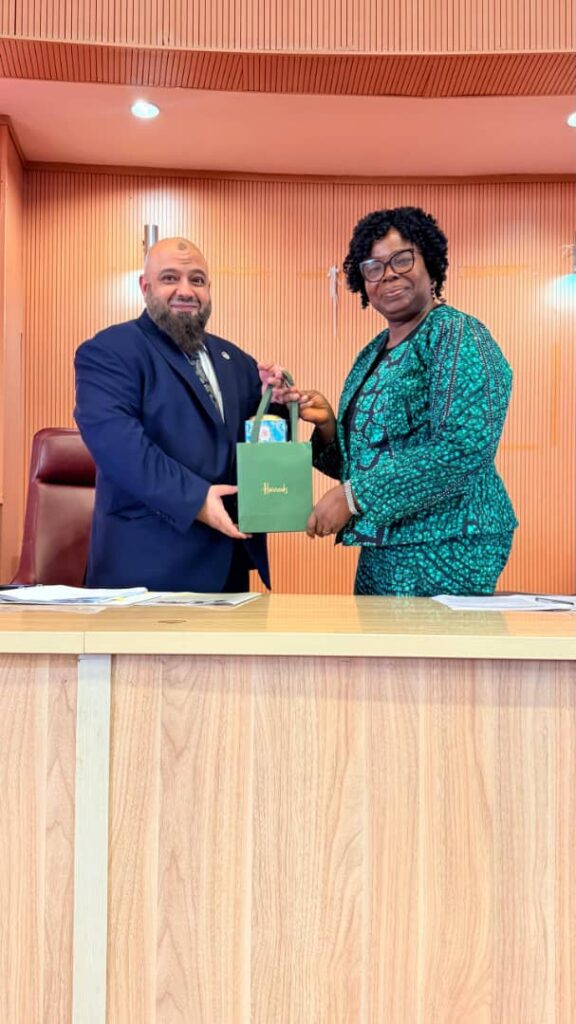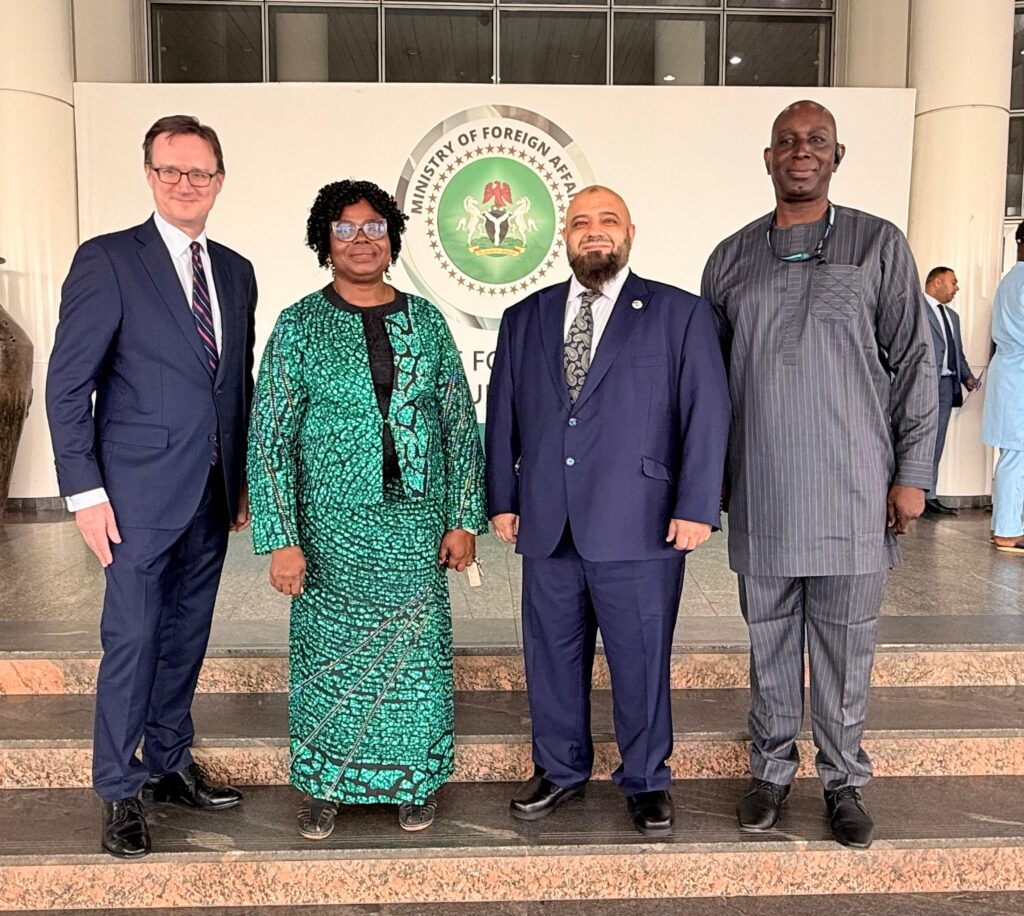UK, Nigeria Deepen Migration,Justice and Security Pact in Abuja, Set to Tackle Organise Crimes,Human Trafficking.
By Raymond Enoch.
In a major diplomatic shift, Nigeria and the United Kingdom have reaffirmed and expanded their joint commitments to tackle irregular migration, enhance security cooperation, and deepen justice reform through a landmark agreement reached at the 2025 Migration, Justice and Home Affairs Dialogue held in Abuja.

The high-level bilateral talks, chaired by Nigeria’s Ambassador Asari E. Allotey and the UK’s Ambassador Asim Hafeez, took place on October 8 and brought together top officials from both countries. This year’s Dialogue marked a decisive follow-up to the March 2024 edition held in London and produced what insiders describe as one of the most comprehensive accords in the history of UK-Nigeria relations.

Central to the agreement is a mutual pledge to intensify the return of individuals who have no legal right to remain in either country, with both parties reaffirming the operational success of the 2022 Migration Returns Memorandum of Understanding. Emphasis was placed on ensuring that all return processes are safe, dignified, and respectful of human rights.
A major highlight of the Dialogue was the United Kingdom’s update on its rollout of an electronic visa (e-visa) system across all visa categories. Nigerian authorities were briefed on new initiatives to streamline visa processes, particularly for Nigerian business travellers. In turn, Nigeria committed to share progress on its own e-visa platform as part of efforts to promote investment and ease of movement between both countries. Both sides reaffirmed their support for legal migration and pledged to promote lawful pathways for mobility while tackling irregular migration channels.
Discussions also advanced on a proposed Memorandum of Understanding on Organised Immigration Crime, which both governments committed to developing and signing. This will bolster their joint efforts in dismantling transnational networks involved in visa abuse, human trafficking, and smuggling. As part of this initiative, the UK will expand its training programmes for Nigerian immigration and border officers to strengthen institutional capacity and operational readiness.
In another critical move, the two countries agreed to launch a Nigerian-led Strategic Threat Analysis on serious and organised crime—an unprecedented initiative in West Africa. This will involve the sharing of intelligence and criminal threat reporting, anchored on Nigeria’s commitment to developing a national strategy under the UNTOC convention. Both countries agreed the measure would significantly enhance real-time responsiveness to criminal threats that cut across borders.
The Dialogue also resulted in a renewed push for better extradition processes. Nigeria and the UK committed to quarterly forums to address and resolve outstanding extradition matters, ensuring faster and more coordinated justice delivery. In addition, both sides pledged to provide clarity on detention conditions and to align existing prisoner transfer agreements with Nigeria’s current laws, particularly the Correctional Services Act of 2019.
A symbolic handover of the UK’s Brighter Futures PREVENT programme to Nigeria’s National Counter Terrorism Centre also took place. The programme, which aims to divert at-risk youth from criminal groups through empowerment and social support, will now be fully domesticated within Nigerian institutions. Nigeria requested that the UK continue its support beyond the planned 2026 exit, citing the success of the programme at federal and state levels.
Other areas of collaboration covered during the Dialogue included anti-trafficking efforts, maritime security, illicit commodities, and strengthening financial crime frameworks. The UK reaffirmed its commitment to supporting Nigeria in tackling illicit finance and agreed to further help develop a Public-Private Partnership model to combat money laundering and terrorist financing. Both sides emphasised the importance of global reforms to financial centres and called for tighter regulation on professional enablers of financial crimes.
As the session concluded, Nigeria and the United Kingdom reiterated their shared determination to see all commitments through, and jointly monitor progress ahead of the next annual Dialogue scheduled to be hosted by the UK in 2026. Both delegations also agreed to maintain confidential, high-level talks throughout the year to ensure continuous engagement.
“This is not just about agreements—it’s about action,” said Ambassador Allotey. “Nigeria and the UK are showing that true partnership means delivering results for our people, our economies, and our security.”
The 2025 MJHA Dialogue represents a turning point in how both nations address cross-border challenges. As regional and global dynamics evolve, Nigeria and the United Kingdom are positioning their partnership not just as bilateral cooperation, but as a model for transnational engagement in the 21st century.









